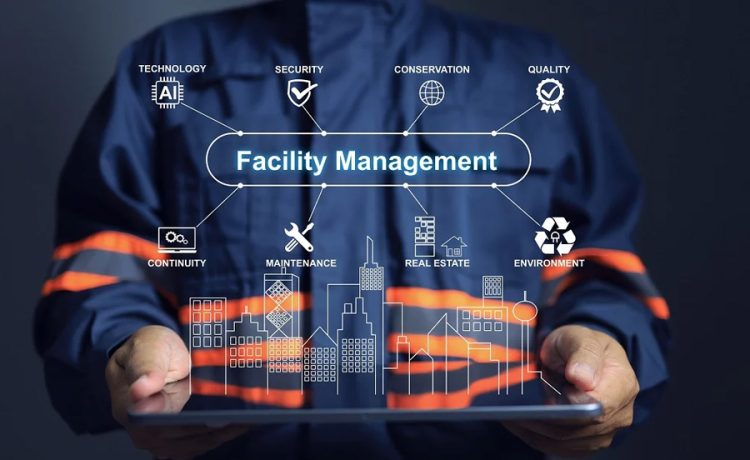Facilities management (fm) is often viewed as a behind-the-scenes function within organizations. However, its impact on business operations is significant, contributing to productivity, cost efficiency, employee satisfaction, and even sustainability. This blog post explores the multifaceted role of facilities management in enhancing business operations, highlighting insights and benefits that are frequently overlooked.
Understanding facilities management
Facilities management involves the integration of people, place, process, and technology to ensure the functionality, comfort, safety, and efficiency of the built environment. It encompasses a wide range of services, including maintenance, cleaning, security, space management, and environmental sustainability.
Enhancing productivity and efficiency
One of the primary roles of facilities management is to create an environment that enhances productivity and operational efficiency. Well-maintained and functional facilities contribute to smoother business operations.
Optimized workspaces:
Effective space management ensures that workspaces are utilized efficiently. This includes arranging furniture and equipment to maximize comfort and accessibility, which can lead to increased employee productivity. A study by gensler found that a well-designed workplace can boost productivity by 20{60cf61eb416c943681bccf3def5668d6083c32c2eb0065b9de8e225e4e9a2fc3}.
Maintenance and downtime reduction:
Regular maintenance of facilities and equipment prevents unexpected breakdowns and downtime. This proactive approach minimizes disruptions to business operations and maintains a steady workflow.
Cost management and savings
Facilities management plays a crucial role in managing and reducing operational costs. Through strategic planning and efficient management of resources, businesses can achieve significant cost savings.
Energy efficiency:
Implementing energy-efficient systems and practices can lead to substantial savings. According to the u.S. Environmental protection agency (epa), energy-efficient buildings can save up to 30{60cf61eb416c943681bccf3def5668d6083c32c2eb0065b9de8e225e4e9a2fc3} on energy bills . Facilities managers can identify and implement measures such as led lighting, smart thermostats, and energy-efficient hvac systems to reduce energy consumption.
Preventive maintenance:
Regular maintenance and timely repairs extend the lifespan of building systems and equipment, reducing the need for costly replacements. A study by mckinsey & company highlights that preventive maintenance can reduce overall maintenance costs by 12-18{60cf61eb416c943681bccf3def5668d6083c32c2eb0065b9de8e225e4e9a2fc3}.
Enhancing employee satisfaction and retention
A well-managed facility contributes to a positive work environment, which in turn enhances employee satisfaction and retention. Employees are more likely to feel valued and motivated when their workplace is comfortable, safe, and well-maintained.
Workplace comfort:
Facilities managers ensure that the workplace is comfortable in terms of temperature, lighting, and air quality. According to the international well building institute, improving indoor air quality can boost cognitive performance by 8-11{60cf61eb416c943681bccf3def5668d6083c32c2eb0065b9de8e225e4e9a2fc3}.
Safety and security:
Ensuring the safety and security of employees is a top priority. Facilities management includes the implementation of security measures, regular safety inspections, and emergency preparedness plans. This creates a sense of security and well-being among employees.
Supporting business continuity
Facilities management is integral to business continuity planning. By preparing for and managing potential disruptions, facilities managers help ensure that business operations can continue with minimal impact during emergencies.
Emergency preparedness:
Facilities managers develop and implement emergency response plans for various scenarios, including natural disasters, fire, and power outages. These plans include evacuation procedures, communication protocols, and backup systems.
Disaster recovery:
In the event of a disruption, facilities managers coordinate recovery efforts to restore normal operations as quickly as possible. This includes coordinating repairs, managing temporary workspaces, and ensuring that critical systems are operational.
Promoting sustainability
Sustainability is a growing priority for businesses, and facilities management plays a key role in implementing eco-friendly practices that reduce environmental impact and promote corporate social responsibility.
Sustainable practices:
Facilities managers can implement practices such as waste reduction, recycling programs, and the use of sustainable materials. According to the world green building council, green buildings can reduce carbon emissions by up to 40{60cf61eb416c943681bccf3def5668d6083c32c2eb0065b9de8e225e4e9a2fc3}.
Leed certification:
Facilities managers can pursue leadership in energy and environmental design (leed) certification for their buildings. Leed-certified buildings are recognized for their sustainability and can lead to cost savings, improved employee health, and a positive corporate image.
Leveraging technology in facilities management
Advancements in technology have transformed facilities management, offering tools and systems that enhance efficiency and effectiveness.
Integrated workplace management systems (iwms):
IWMS software integrates various facilities management functions into a single platform, providing real-time data and analytics. This enables facilities managers to make informed decisions and optimize resource use.
Iot and smart buildings:
The internet of things (iot) allows for the integration of smart sensors and devices that monitor and control building systems. This technology provides real-time insights into energy use, occupancy, and equipment performance, enabling predictive maintenance and energy optimization.
Mobile solutions:
Mobile apps and platforms allow facilities managers to monitor and manage facilities remotely. This enhances responsiveness and ensures that issues can be addressed promptly, regardless of location.
Conclusion
Facilities management is a critical component of business operations that goes beyond maintenance and cleaning. By optimizing workspaces, managing costs, enhancing employee satisfaction, supporting business continuity, and promoting sustainability, facilities management significantly enhances overall business performance.
Investing in effective facilities management not only leads to cost savings but also creates a productive, safe, and sustainable work environment. By leveraging technology and implementing strategic practices, facilities managers can drive continuous improvement and support the long-term success of the organization.
As businesses continue to evolve, the role of facilities management will become increasingly important in navigating challenges and seizing opportunities. Embrace the potential of facilities management to enhance your business operations and achieve your strategic goals.













